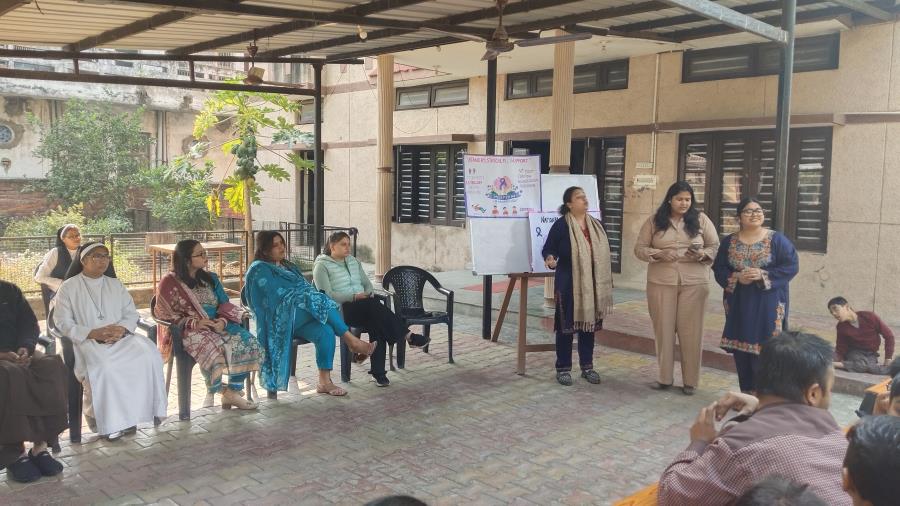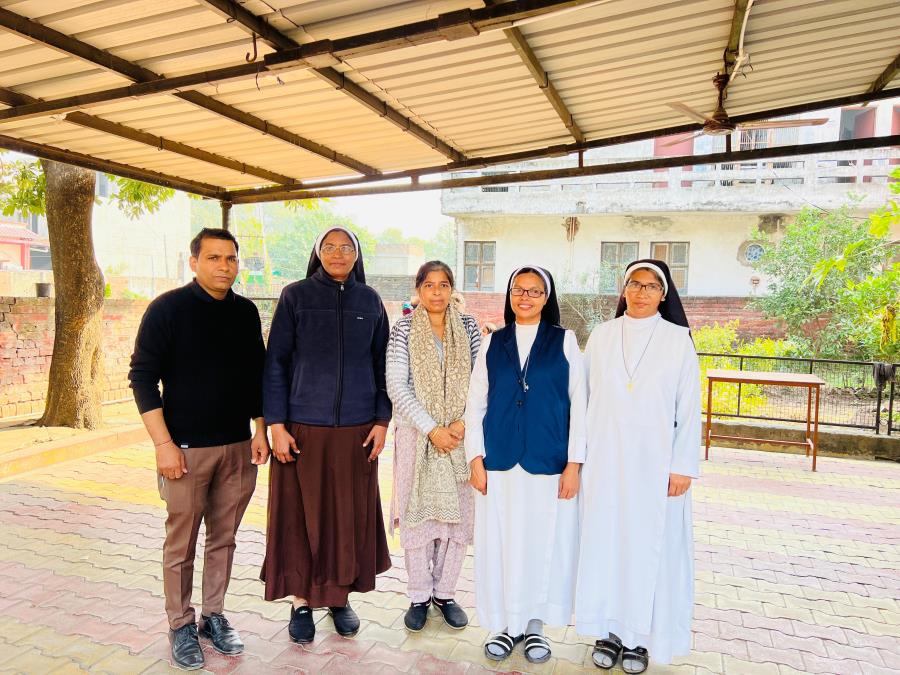National Epilepsy Day
DATE Nov 17, 2025
The School of Education, MIER College of Education, observed National Epilepsy Day on 17 November 2025 at St. John Rehabilitation Centre, Mandal, with the aim of spreading awareness about epilepsy-its causes, types, and management and promoting a more informed and compassionate community response. The programme was conducted under the supervision of Professor Nishta Rana, Head, School of Education, and coordinated by Dr. C. R. Jangra, Assistant Professor, Special Education, SoE.
All students of B.Ed. Special Education Semester III participated enthusiastically in the outreach initiative and contributed meaningfully to the awareness activities. Ms. Sachinda Mahajan, a Semester III student, delivered an insightful and informative session on the types of epilepsy and its management techniques. She explained various forms of seizures, first-aid responses, and long-term care strategies that can enable individuals with epilepsy to lead safer and more independent lives. Following this, Ms. Brighu Sharma, also from Semester III, presented a scientifically grounded talk on the causes of epilepsy, elaborating on the genetic, neurological, and environmental factors associated with the condition. He emphasized the importance of early diagnosis, appropriate medical intervention, and widespread community education to reduce the stigma often linked to epilepsy.
In the concluding segment of the programme, Ms. Shweta offered a well-drafted summary of the key points discussed and highlighted the collective responsibility of society in supporting individuals with epilepsy. To further reinforce the educational impact of the event, Ms. Shweta and Ms. Bhawna Manhas designed an informative and visually appealing poster on National Epilepsy Day, featuring essential messages related to epilepsy awareness and care.
Prof. Adit Gupta, Principal, MIER College of Education, appreciated the initiative and commended the School of Education for organizing a socially relevant and educationally significant programme. He highlighted the importance of sensitizing future educators about neurological and developmental conditions to ensure that they are well-equipped to support learners with diverse needs.




